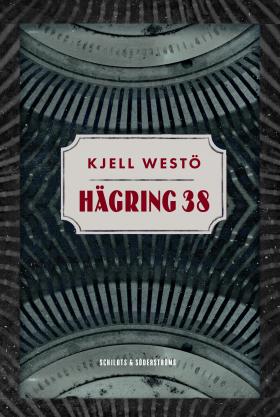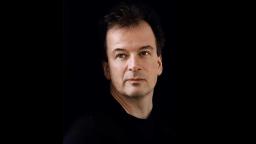
Hägring 38
(Mirage 38)
by Kjell Westö
reviewed by Tom Ellett
Kjell Westö’s writing reflects the jockeying for position between the author’s inner social historian and his inner novelist. The ‘38’ in the title of Hägring 38 refers to 1938, the year of this meticulously researched narrative of ideas and events. The ‘hägring’ – mirage – of the title refers to the unrealisable dream of calm, of business as usual, while the world is heading inexorably towards crisis and conflict. True, for the duration, ordinary life goes on as the characters engage in local politics and personal dramas, work, go to dances and evenings at the movies, watch sports and write books.
In the aftermath of the First World War, nationalism was a strong cultural and political force in Finland, too. One result of its uneasy alliance with socialist-inspired resentment of the old ruling class was the growing isolation of Finland’s Swedish-speaking minority to a handful of Baltic provinces and the cities – including the capital Helsingfors (Helsinki), the setting for Hägring 38.
Such tensions, coupled with long memories of the war and persecution of 1917-18, energise but finally threaten to split the Wednesday Club, a dining, drinking and debating society formed by six upper middle-class men who have known each other since school. Members of the Swedish-speaking establishment, they know that their role in shaping Finland is still crucial; time has not quite passed them by.
The most consistently sympathetic member of this group, Claes Thune, is the novel’s male protagonist. A former diplomat now practising as a lawyer, the fair-minded Thune is no leftist radical, yet is clearly disturbed by the admiration for Hitler and latent anti-Semitism of some of his associates and relatives.
The other members of the Wednesday Club display almost every shade of contemporary political opinion. Leopold Grönroos, a venture capital investor, is apolitical and probably amoral. Guido Röman, a journalist, is too unengaged to care much one way or another. Of the two medics, Robert Lindemark is a liberal-minded psychiatrist, Lorens ‘Zorro’ Arelius a Blut-und-Boden right-wing physician. Joachim ‘Jogi’ Jary is a talented actor, prone to deep clinical depressions and carrying – as a child of his time – the heaviest of millstones around his neck: he is a Jew.
The narrative alternates between Thune’s perspective and that of the female protagonist, Matilda Wiik – also a Swedish-speaker, but from a very different, working-class background. Owing to her father’s perceived communist sympathies and her mother’s Russian ancestry, she was interned during the Finnish civil war of 1918. In addition to the inevitable psychological scars borne by any prison-camp survivor, she carries two specific burdens: memories of repeated, silent rapes by ‘The Captain’, a camp official, and a constant sense of guilt about not being there to protect her younger brother, now a disturbed, tense adult. Employed as Claes Thune’s secretary, Matilda is suddenly thrown into The Captain’s company again. He seems not to recognise her, but is strongly attracted to her and pursues her patiently and with the greatest propriety. This situation is too inherently awful to allow any normal development and, in the end, the tragic breakdown duly comes.
Not that this is the only source of interpersonal tensions; on the contrary. The human drama is finely, soberly balanced against the growing geopolitical crises. This in turn generates smaller but telling changes in people’s reactions and relationships. Written in elegantly simple prose, with just the right degree of 1930s formality in the dialogue, the novel successfully fuses history-as-it-happens with the stories of the individuals leading their lives at this particular juncture. It is a mature work that is set to cement Kjell Westö’s reputation as one of Finland’s finest living writers.
A translated extract from the novel appears in the SBR special issue Cool Swedish Titles from Finland

Hägring 38
Schildts & Söderströms, 2013. 299 pages.
